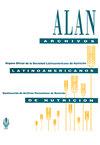土著妇女的生活方式、心理健康和体重指数
IF 0.3
4区 医学
Q4 NUTRITION & DIETETICS
引用次数: 1
摘要
土著妇女的生活方式、心理健康和体重指数。介绍肥胖在女性中更为常见,也被发现存在于土著人口中。在大学研究中,与肥胖相关的生活方式正在巩固,尽管这是已知的,但研究仅限于体育活动和饮食,忽略了其他生活方式组成部分,如生活欣赏。此外,还需要证实心理健康是否会导致土著妇女超重。客观的确定土著妇女的生活方式、心理健康和体重指数(BMI)之间是否存在关联。材料和方法。一项横断面研究在墨西哥瓦哈卡州Juchitán的110名Zapotec大学女生中进行。采用《大学生心理幸福感量表》、《大学生健康生活方式量表》和一份关于个人资料的问卷。测量体重和身高以计算BMI。后果BMI、自我接纳(r=-0.33;p<0.01)和生活欣赏(r=-0.22;p<0.05)呈负相关。生活方式和心理健康维度呈正相关,其中生活欣赏与生活目标(r=0.55)和自我接纳(r=0.48)之间的相关性最强。多变量模型确定生活欣赏和自我接纳与BMI相关。结论生活欣赏和自我接受是BMI的预测因素,甚至比运动和营养行为更具相关性。本文章由计算机程序翻译,如有差异,请以英文原文为准。
Lifestyle, psychological well-being, and body mass index of indigenous women
Lifestyle, psychological well-being, and body mass index of indigenous women. Introduction. Obesity is more common in women and has also been found to be present in indigenous populations. During university studies, obesity-related lifestyles are in the process of consolidation, and although this is known, research is limited to addressing physical activity and diet, ignoring other lifestyle components, such as life appreciation. Additionally, there is a need to corroborate whether psychological well-being contributes to excess weight in indigenous women. Objective. To determine whether there is an association between lifestyle, psychological well-being, and body mass index (BMI) in indigenous women. Materials and methods. A cross-sectional study was conducted among 110 female Zapotec university students in Juchitán, Oaxaca, Mexico. The Psychological Well-Being Scale, the Healthy Lifestyle Scale for University Students, and a questionnaire about personal data were used. Body weight and height were measured to calculate BMI. Results. There was a negative correlation between BMI, self-acceptance (r = -0.33; p < 0.01), and life appreciation (r = -0.22; p < 0.05). Positive correlations were found between lifestyle and psychological well-being dimensions, with the strongest correlations being observed between life appreciation and purpose in life (r = 0.55) and self-acceptance (r = 0.48). The multivariable models determined that life appreciation and self-acceptance are associated with BMI. Conclusion. Life appreciation and self-acceptance are predictors of BMI and are even more strongly associated than exercise and nutrition behaviors.
求助全文
通过发布文献求助,成功后即可免费获取论文全文。
去求助
来源期刊
CiteScore
0.50
自引率
0.00%
发文量
31
期刊介绍:
Archivos Latinoamericanos de Nutrición (ALAN) is the official publication of the Sociedad Latinoamericana de Nutición (SLAN), for the dissemination of knowledge in the fields of food and nutrition, principally throughout the American Hemisphere. Articles in Spanish, English, Portuguese and French are accepted, both from the Society members and from nonmembers, in the following categories: 1. General articles (critical scientific reviews); 2. Research articles (originals); 3. Papers in applied nutrition (analytical results from intervention programs and discussion of reconmendations of practical application), and 4. Letters to Editor (short comments of general interest or about scientific facts and results previously published in Archives).

 求助内容:
求助内容: 应助结果提醒方式:
应助结果提醒方式:


